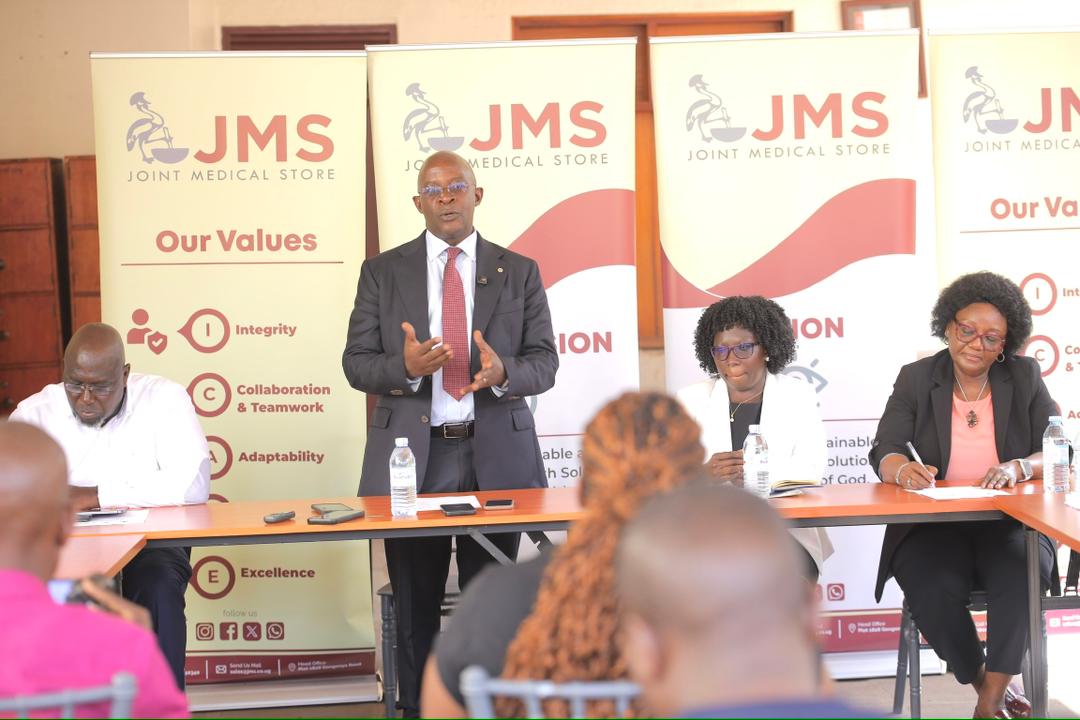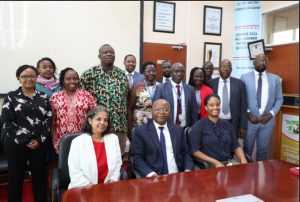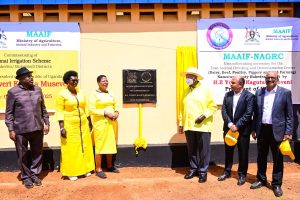The Joint Medical Store (JMS), in partnership with the Ministry of Health, Makerere University School of Public Health, and the Bill & Melinda Gates Foundation, has launched an Integrated Health Supply Chain Project worth USD 1.5 million( approximately shs 5.7 billion), aimed at improving the availability, accountability, and efficiency of essential health commodities across Uganda.
The new initiative comes at a critical time when many health facilities across the country have faced disruptions in the supply of essential medicines and commodities following a shift in funding priorities by the U.S. State Department.
While this realignment focused on life-saving commodities, it inadvertently created stock gaps in other crucial items, affecting patient care and treatment continuity.
Speaking during the launch on Thursday, Dr. Bildard Baguma, Executive Director of Joint Medical Store, said because of the shift in funding priorities by the US government facilities have experienced delays in receiving supplies, stock imbalances, and challenges in accountability along the supply chain with a direct impact on patient care from continuity of HIV treatment to maternal and child health outcomes underscoring the urgent need for integrated solutions.
He added that the project seeks to address these persistent challenges by creating a more resilient and efficient health supply chain that ensures no patient is left behind.
“This initiative represents a bold and timely step toward building a more resilient and efficient health supply chain that ensures medicines reach every patient, on time and in full,” Dr. Baguma said.
“Together with our partners, we are strengthening systems, saving lives, and advancing the vision of a healthier Uganda for the Glory of God.”
Dr.Baguma explained that the Integrated Project will manage the warehousing, ordering, and delivery of health commodities worth approximately shs 17.1 billion.

The funds have been donated by the Bill and Melinda Gates Foundation.
The project brings together key interventions designed to strengthen the end-to-end health supply chain — from ordering to delivery and reporting.
It will enhance warehousing, ordering, delivery, and reporting systems; support the retrieval and safe destruction of expired commodities from health facilities; promote research and analytics to inform national supply chain policy; and provide technical support and digital training for over 1,100 health facilities in the Integrated Online Ordering System.
In addition, the initiative will introduce a fixed monthly warehousing and distribution cycle to ensure timely deliveries to health facilities across the country.
Through the use of GIS-based route mapping, JMS will optimize delivery routes to reduce costs and improve efficiency, while digital capacity building will enable real-time tracking and management of health commodities at facility level.
Dr. Baguma emphasized that the intervention directly supports Uganda’s national health goals and contributes to the global agenda of strengthening health systems for sustainable impact.
He commended the Ministry of Health, Makerere University School of Public Health, and the Bill & Melinda Gates Foundation for their steadfast commitment and collaboration.
“Their support reaffirms the power of partnership in transforming health service delivery across Uganda,” he said.
With improved logistics, enhanced data use, and stronger accountability measures, the JMS Integrated Project promises to significantly improve the consistency and quality of health commodity supply — from HIV treatment to maternal and child health services — across the country.






















